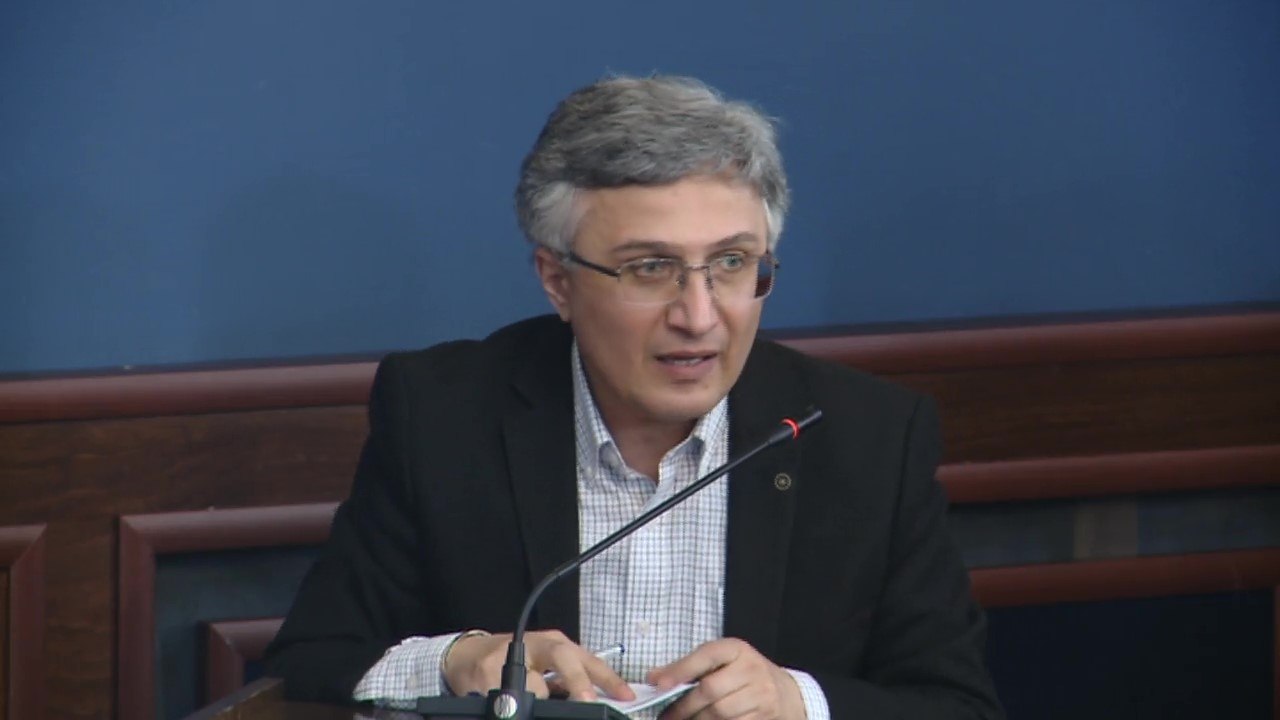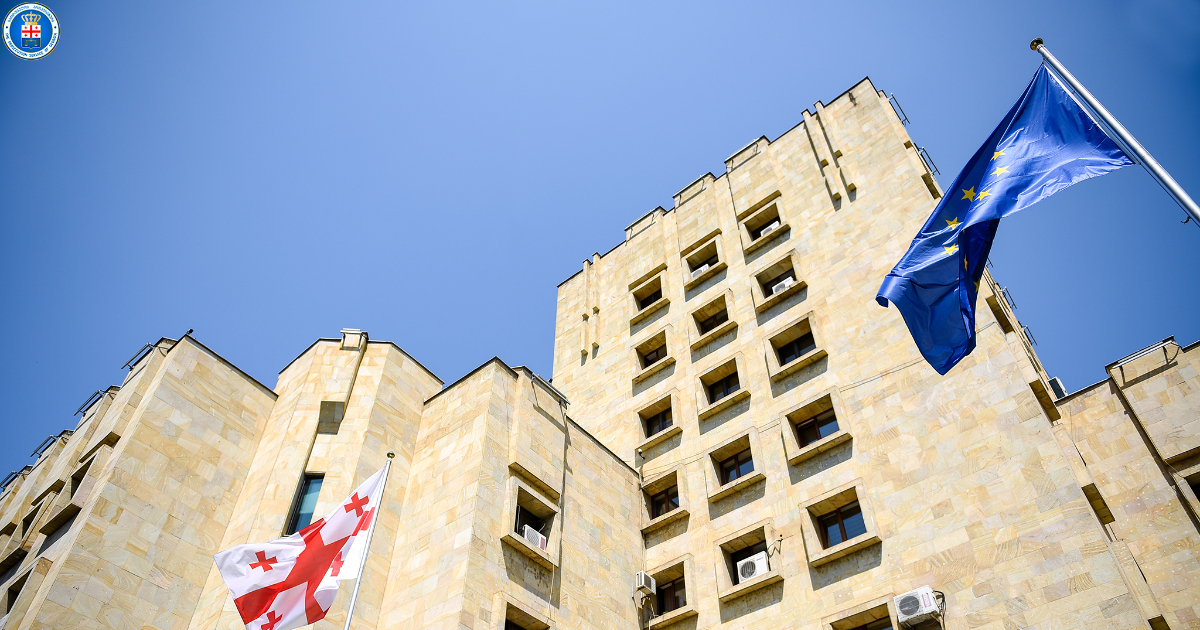Targeted sanctions expected ahead of Georgia's local elections, constitutionalist Alapishvili

The confrontation within Georgian Dream has been developing for quite some time and is now clearly visible, Alapishvili said
Author
Front News Georgia
The resolution adopted by the European Parliament this week, slams the Georgian Dream government and emphasizes public protest “despite brutal repression,” has sparked heated discussions in the country’s domestic political circles. To what extent does this document have legal implications, and what impact will it have on Georgia’s European integration process? Front News spoke to lawyer and constitutionalist Levan Alapishvili on these and other issues.
– The European Parliament adopted a resolution with 490 votes, harshly criticizing the Georgian government and highlighting public protest “despite brutal repression.” How can the form and content of this resolution be assessed legally? Does it have a direct legal impact on the country’s domestic political processes?
This statement and the adopted resolution express the position of the highest representative members of European countries. Accordingly, the main function of all representative political bodies is to provide political frameworks and directions to executive bodies - just as in Georgia, where Parliament determines and the government implements. Therefore, it should not be difficult to imagine the significance of this decision for Georgia.
As for political influence within the country - of course, Georgia is not a member state of the European Union. The government is attempting to deflect from its difficult political situation by pointing to that fact. However, Georgia’s constitutional obligation is to join the European Union. The government has now put that process into question, and similar resolutions continue to come from Europe. Naturally, this resolution will have an impact on the social and economic situation within the country. The European Parliament's statement is a form of support for the Georgian population - a declaration of solidarity with those who protest the Georgian government’s anti-Western trajectory.
– The government claims there is no consensus in Europe on Georgia and hopes that this resolution, like others, will be “put on the shelf.” Do you think EU member states are refraining from taking drastic steps before the local elections [later this year]?
I’ll respond with a wise saying: “a drowning man will clutch at a straw”. This also applies to our government.
When the Georgian Dream raises this issue, we should ask: have any similar sanctions already been applied to Georgia? If so, how were they addressed?
The European Union stands on democratic values - even when it comes to internal consensus, including support from authoritarian-aligned figures like Slovak PM Robert Fico and Hungarian PM Viktor Orbán. These two leaders are seen as allies of the GD within the EU. But we must remember: the EU is a union of states. While an authoritarian like Russian President Vladimir Putin can still push drastic decisions unilaterally, the EU acts in shared interest. And if consensus forms in Europe that the Georgian government is aligned with Putin and authoritarianism, then no EU state will hesitate to impose sanctions.
So I suspect that Hungary and Slovakia - the so-called “straw” for our state - will no longer provide political cover. We can see the current situation of Putin’s ally Orbán and his prospects. We’ve also heard recent remarks by German Chancellor Friedrich Merz about Fico. I believe this support will soon vanish. A shift by the Georgian government towards authoritarianism cannot succeed. Our country and society are not Belarus - the population will not tolerate such a direction.
As for the self-government (local) elections, I expect there will be an international response before the vote. But this will be carried out with maximum caution, so as not to harm Georgia's broader interests. Any sanctions would be narrowly targeted at the ruling political force and its supporting propaganda machine.
– The European Parliament resolution states that opposition leaders must be released, otherwise the local elections will not be considered legitimate. Do you believe President Mikheil Kavelashvili’s offer to be approached for clemency is a step toward a solution? We also know he can pardon without an appeal. Do you expect the government to act?
From what I observe, the strategy of the ruling political force mirrors that of Putin and Lukashenko - to take as many prisoners as possible, in order to later trade them personally. For example: “I’ll release five prisoners if you let us do business in a certain country, or if you refrain from sanctioning us.” This amounts to trading in human liberty. How successful is Putin’s strategy? If the ruling party of Georgian Dream is thinking along those lines, it would do them well to reflect. The war in Ukraine has changed the international approach to such regimes - decisions are now made consistently everywhere. They should consider that there are still members of the younger generation within their own ranks who continue to defend democracy. The time will come when these leaders must answer for their actions - first to their own children, then to the nation and the Georgian people. Let’s hope they come to their senses and take steps toward compromise.
– Recently, there have been persistent discussions about internal rifts within the ruling party, particularly following the incident involving former Adjara Government head Tornike Rizhvadze. How do such crises affect legal and institutional stability?
The confrontation within Georgian Dream has been developing for quite some time and is now clearly visible. It began during the fifth President Salome Zourabichvili’s presidential campaign. In terms of the electoral outcome, the ruling political force lost to the opposition in the first round. It required full mobilization - including from the security services - to secure victory in the second round.
That first round also saw the introduction of a new generation of Georgian Dream members into Parliament, and their gradual rise into party leadership. I’m referring to [current PM Irakli] Kobakhidze and his team. The older figures within the GD resisted this shift. In the first round, many of the original GD members were inactive in the campaign. Afterward, Bidzina Ivanishvili [the GD founder and honorary chair] had to work hard to regain voter support - we all remember his public appeal. Then they brought back Irakli Garibashvili, symbolizing a temporary reconciliation with the party’s old circle.
This was merely a temporary truce. Political infighting is not new - [second President Eduard] Shevardnadze and [third President Mikheil] Saakashvili played similar games. Ivanishvili is now repeating that pattern. But we know what happened to previous governments and their factions - the same fate awaits this one.
So, this internal competition between rival camps is not new in Georgian politics. Its current escalation was expected - and is unfolding in front of us. The question now is: which camp will win Ivanishvili’s favor?
By Elza Paposhvili
Tags:
Levan Alapishvili




